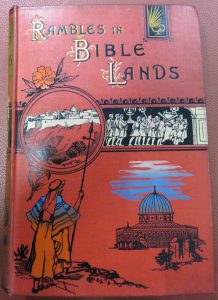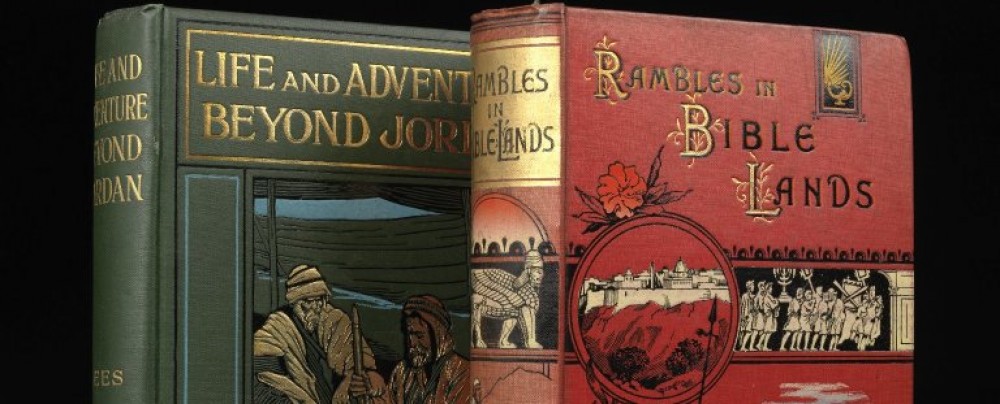A post by guest curator Suzi Higton, School of Divinity
The books of intrepid travel writers whose adventures span from Jerusalem to Cairo feature throughout the collections at New College Library and in particular, those gifted to the library by William Fulton Jackson. A selection from this collection is now on display in New College Library.
Born in 1855, Jackson, recently uncovered as the donor of the W. F. Jackson (WFJ) collection, was the General Manager of the North British Railway Company. His interest in and passion for travel, particularly the Holy Land and Egyptology is reflected both in his numerous books on the subject and detailed photograph collection which is held by the Glasgow University Library Archives.

Newton, Richard. Rambles in Bible Lands Edinburgh: Gall and Inglis, New College Library, WFJ. 3.166
When selecting books from the WFJ collection to display, the eye is immediately drawn to the books’ beautiful cover designs, maps and illustrations. Rambles in Bible Lands stands out, not just for its intricate artwork but for being aimed at a younger audience. Written by the Reverend Richard Newton, it was published initially whilst he was editor of the American Sunday-School Union, and is based on a series of letters written to Sunday-School World and A Child’s World whilst travelling through Syria, Israel, Lebanon and Egypt. Continue reading

